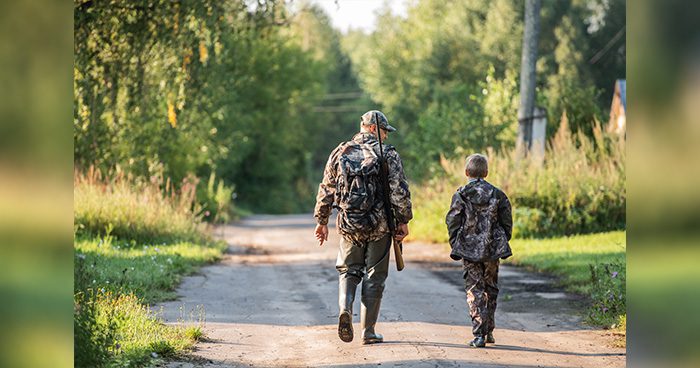Hunting with Your Kids: Part 2
By Jordan Breshears
The once looming concern that is now impeding on our everyday lives…devices and teens. This is likely something you are fully aware of and perhaps is already on your hitlist. If you are like me, you have seen how devices like smartphones have changed our own personal lives and the thought of your teen battling the same issues doesn’t sit well.
Also like me, you may have an older teen or two that slid under the radar and now are fully addicted with no end in sight. Are there options to help with this? Why does a teen or pre-teen prefer a digital screen over an actual physical experience like hunting or fishing? There aren’t solid yes-and-no or black-and-white answers to these questions. However, I have been battling it for years and have a couple tips to share thanks to my successes and failures.
Understanding what you are up against is the first step to conquering this…our children, depending on their age, are experiencing rapid brain development. The circuits they use the most are made very efficient through a process called “myelination”. While the circuits used very little are pruned and become stunted. Thus: “If children are spending all their time online, they will have a complex and elaborated neural scaffolding for that but not for other important activities, like learning delayed gratification, frustration tolerance, in-person socialization, mind-body connection, etc. Also, adolescents are exquisitely sensitive to social cues and so are more likely to be influenced by the social contagion effect of the internet.” –Dr. Anna Lembke
I don’t intend to preach at you about devices; we all have them, we all use them and statistically most of us abuse them. Okay, so now what? Well, it depends on which phase of life your child is in, but we can deduct the obvious. Too much of anything isn’t healthy. While we are amidst a fully technological world, we are surely stuck with it at some level. Our kids are already fully baptized into this reality by the time they reach 6-8 years of age. So, assuming Dr. Lembke is onto something with her research. We need to encourage the building of those “other circuits”. Similar to Part 1 of this series: We are back to the pursuit of our children. Their hearts, their desires, their common everyday interests MUST be in our field of view.
Now, I know my phone is a weakness for me, but I really didn’t understand how much until I purchased phones for my 16 and 14 year old kids. When I restricted their usage, I also started monitoring mine. WOWZERS! When I started my daily average was just over 3.5 HOURS! Okay, so the old adage, “Do as I say, not as I do.” applies here. Except we all know that doesn’t work. So, that’s another story for another day, but last week I averaged 1.5 hours per day. How? By eliminating social media on my phone and only using it on my laptop when needed, instead of using it for mind numbing entertainment.
Okay, I said I wouldn’t preach, so now what? Science tells us to travel more and exercise often to encourage neuroplasticity. Or the “re-wiring” of the brain’s circuitry. Well, it just so happens that hunting requires travel AND exercise, coupling this with the adventures you build through the pursuit of your child and you could quite literally build a new foundation of brain circuitry in favor of outdoors and hunting! Crazy right?
For me, this is an ongoing process with each of my six kids. But my active interest in their lives is being noticed and all of us are seeing the positive changes. The adventures are in the works, Wyatt and I are planning a trip to Hawaii or Texas for some warm weather archery hunting. Abigail wants to hunt black bear something fierce and we are working out the details. Jeremiah is still excited to hunt anything, anytime, anywhere. But he’s only 10 going on 11.
How are you protecting your kids from devices and encouraging them to pursue healthy adventure? I would love to hear about your experiences, as well as tips and advice.





